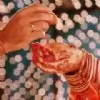Originally posted by: napstermonster
UNRES
Firstly, of course hahaha! Beat you all to the top spot for commenting on Tattle-Tale's first post in literally four weeks! (looking down at everyone else who reserved spots BELOW the very first one!--shuddh desi stalking ki lessons meri se le lo, behnas!)Secondly--what I appreciate about this series is what you came back to deliver--the idea that these people--al of them-- are three dimensional, and live in a world beyond love and hatred, sacred gods and demons, and even themselves. The concepts that Rangrasiya promised to address (and then did not deliver on--so far) is being addressed here. The idea of country, of responsibility, choices and the consequences of those choices. Rudra's Mala's, Paro's, even the BSD's. The Army is a subject that is rarely touched upon in both fiction and on shows without a lot of vainglorious posturing about patriotism and jingoistic imagery. But what you have done is brought the reader back to the basics--the decisions that are made by people who are in charge of the army, and how the impact of those decisions affect the decision maker, AND the country for whom these choices are being made.Men, and women, no matter how courageous, and Rudra, the General, even Aman are brave and courageous, if nothing else--no matter how big their hearts and how dedicated their service, they are human beings. You make them real, Like Laila choosing men with the name "R." Its both ugly, and touching at the same time. This chapter makes me remember that even the uniform is Fallible. Capable of making mistakes. And in these people's hands, mistakes are not Paro burning a roti or Mala hurting a son. They are love and death decisions, where the impact of their natures comes out in a medal for one man and in a body bag for another.
I loved the small touch of showing chinks in Rudra's armor of surety and arrogance. His confidence, perhaps his very need to know he is right, is being pierced here---in 500 words or less. Rudra is first and foremost a commander of men, and a leader of his brothers. His nature, his rashness, his ability to jump first and ask questions later has made him fearless in battle, undefeated in war. It is also, the very trait that must make him dangerous for the men who follow him--men with slower reflexes, less training, less bravado and thus--a shorter life span.The army men who make choices, have to do so under circumstances that are difficult enough. I recall how you used Aman, and his fear and loss and grief for Rudra while he was lost. To lose a comrade, to know of his torture--and to be able to do nothing about it--at least Aman got Rudra back. This part reminded us readers of the men who did NOT come back. And kahi na kahi--Rudra shoulders the blame, the General shoulders the blame as much as the Thakur's bullets do.I love how you are bringing out the cost of Rudra's inherent nature to the army--and to the men he loves in it. I know this is leading to a definite crisis of conscience. I cannot wait to see what your talented pen comes up with to either break this hairline crack down further, or to mend it before its too late. Will you make the edifice that is Major Ranawat come tumbling down onto the people, and the Army he so loves?Bravo for ruthlessly, and unflinchingly making this series less about love and more about living. And thank you for having enough faith in us readers NOT to give us smut and cardboard cutouts, and giving us, instead, resonant images, careful nuanced character building and small moments of grace. I loved how you tied the entire series slowly back to the stripped down emotional brokenness of this man, and also, the emotional strength and wisdom of the woman he loves.
Yes Rudra. The cost of your damage is more than the cost to the women you have loved and lost--your lack of control costs you the lives of the men you lead. Chilling.Sorry. Thoda lamba ho gaya-- itni der baadh read karne ko paya!
Welcome back!
































